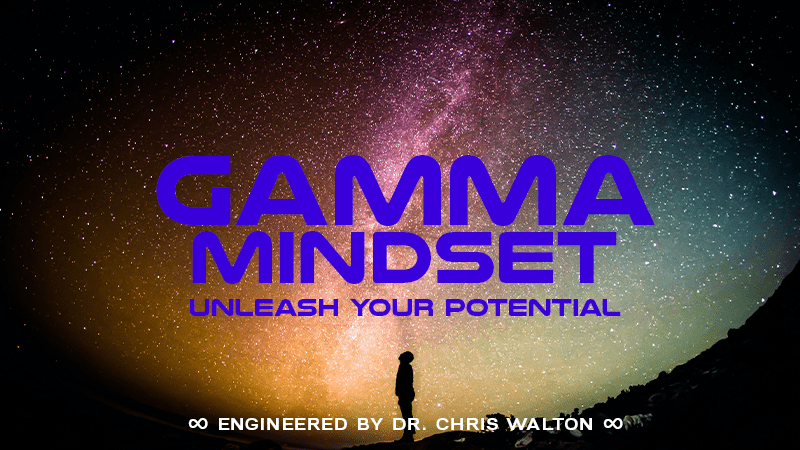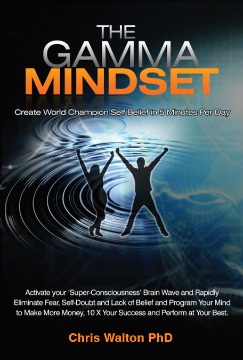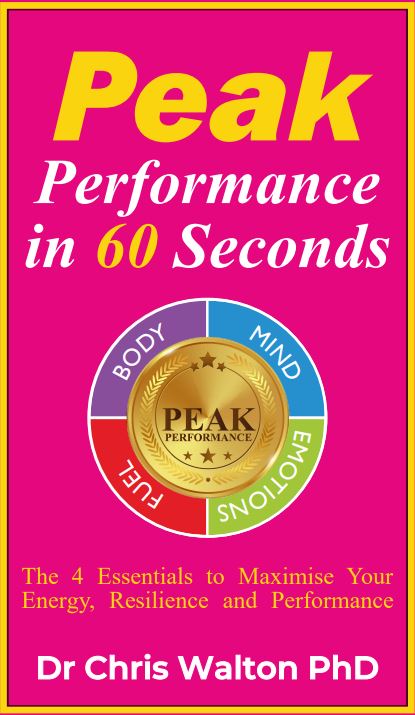“The Beliefs that we Hold in Our Mind Create the Biology and Behaviour of Our Lives”
Dr.Bruce Lipton – Spontaneous Evolution
You think you know what you believe, right?
The fact is that most of us are driven by behaviours based on beliefs that we may not ever have examined, let alone agreed to hold.
So let’s get straight to the nuts and bolts of why you think, feel and act the way you do.
The iceberg model illustrated provides a simple metaphor that explains how beliefs influence our emotions and motivate our actions.
As you know, an iceberg is approximately 90% unseen, submerged underwater, so we see only the tip of it. We can’t really know how big it is or what it looks like.
That iceberg is very much like beliefs—very few of them are conscious (above the water line of our knowing). Most remain hidden from us, submerged deep in our subconscious minds.
We are not aware of what our unconscious assumptions and beliefs actually are, and yet they influence every aspect of our lives.
Just to be absolutely clear in our terminology: our behaviours are our actions (what we do, say, etc.) and how we carry those actions out.
Behaviours have a style that are encoded by beliefs, for instance by our worldview and our personal style, which are things that can be generalized into “types” (or even stereotypes).
So, for example, some people are conservative, others liberal. Some are Type A personalities (outgoing, action-oriented, extroverted) and some Type B (more retiring, introspective and introverted).
Obviously what we do and say—and how we do and say things—strongly influences the outcomes of our interactions and the situations we create in our lives.
Our behaviours are driven by our emotions and feelings. (Some psychologists and other professionals make a distinction between emotions and feelings, but we won’t split hairs here. I will use these terms interchangeably throughout these posts.)
We all know how powerful emotions can be: they can inspire us or paralyse us.
When we feel confident, excited, appreciative, happy and full of vitality, we think and behave very differently from when we feel self-conscious, unsure, frustrated, stressed, tired or depressed.
What we might not be aware of, however, is that many of the emotions we feel are determined by a deeper level of cause-and-effect—the level of our perceptions and beliefs.
For example, if you express your opinion to someone and that person disagrees with you, you could feel many different emotions in response.
You could simply accept that person has a different viewpoint and not feel much at all, because your underlying belief may be that everyone is entitled to his or her opinion.
You could feel surprised that the person disagrees, and perhaps then feel frustrated that perhaps you were misheard.
Your underlying belief is that the person is like you in many other respects and so should think like you.
You might even feel self-righteous, feeling yours is the correct and logical opinion, and also feel dismissive of that person, thinking him or her ignorant or misguided.
An underlying belief driving that response might be that there is a moral imperative behind the opinion and that any spiritual or ethical person would believe as you do.
There are many possible responses because there are a myriad of beliefs that drive your emotional self.
The point here is that to change our lives, we need to go deeper than simply exploring our emotions—we need to get to the level of our core beliefs.
Emotions can be clues to our beliefs, but they are not enough in and of themselves to tell us what is really influencing us and our lives.
It’s important to understand that I am not talking about attitudes here. Our overall emotional template is more than a set of attitudes.
Attitudes, as in a positive versus a negative outlook on facing challenges and meeting opportunities, are important, but they are still surface level in terms of the impact they have on our lives, and they are subject to situation, environment, the people around us, and other transient influences.
Beliefs go much deeper and form a more or less stable, even if unconscious, “palette” by which we live our lives.
The reality is that percolating beneath any of our core emotions is a set of conscious and subconscious beliefs that control our perceptions of life and thus also control our emotions, thoughts, and the quality of our actions and behaviours.
The beliefs are the scaffolding that hold our emotions in place, however transient those emotions may be.
Our beliefs are the foundation upon which rests the entire structure of our life and its perceived quality.
Building on the definitions I have just given, I can go one step further and define beliefs in two primary ways, starting with the more scientific definition and moving to a more generalized and holistic one:
- According to many scientists and psychologists, a belief is any perception, cognition, or emotion that the brain assumes, consciously or unconsciously, to be true.
- More generally, a belief is thought or a collection of thoughts that determines a person’s perceptions of the world and so influences, and even dictates, the choices that person makes, the relationships he/she has, the creations he/she manifests, the behaviours he/she demonstrates and ultimately the life that person lives.
The second definition is the one that I will be focusing on more intently in these posts.
I will be asking you to examine your core set of beliefs and how they are influencing you at the deepest level, as well as asking you to discern which of those beliefs are helping or hindering you in taking action, accomplishing your goals, socialising with others, healing your body, making sense of yourself and making meaning in your world.
For all the talk of emotions, thoughts and the unconscious and conscious aspects of the brain, beliefs are not only abstract things that impact you psychologically. They exist in the form of thought patterns in your physical being.
They are very real electrochemical signals that are broadcast throughout your body.
They impact every aspect of your being, from your “happiness factor” to the strength of your immune system, from your outlook on life to the cascade of your hormones, enzymes and overall body chemistry.
Thoughts are things. And beliefs are the content and substance of those thoughts.
To really change your life, you don’t have to change your thoughts. You have to change your beliefs.
Let’s look at an extended example of how thoughts—and more importantly the beliefs that they encode—can impact not only your approach to life but the way your body helps or hinders you as you move through life.
Suppose you have a job interview and you fully believe you are the right person for the job, although you don’t have all the skills required for the job.
You don’t let the fact that there are few holes in your resumé stop you from applying for the position, and you are confident in your abilities and not afraid to articulate them.
You have a confident attitude and upbeat emotions about this job and how you fit into it.
Your positive attitude is fuelled by the belief that people tend to see the best in others so you expect the interviewer will see the best in you.
You are willing to learn new skills to fulfil all the job requirements and you believe that the interviewer will appreciate your ambition.
Basically, you believe that the world is a good place, you are a competent person and challenges are really opportunities for growth.
As you arrive at the job interview these beliefs are already setting up a very real physical cascade of events: they stimulate positive, life-enhancing chemicals to flow through your brain and body, which then increases your mind-body coherence, which in turn helps you to up your performance level.
The result is that you feel less stress than many people would feel in a job interview and you are able to naturally act more confidently and feel more relaxed.
This relaxed body response helps you to think quickly and adeptly and to speak with clarity about your competence, knowledge, skills and experience.
Almost everything that will occur in your job interview will have started with your belief about yourself, the world and other people.
Now let’s explore the flip side of the situation…
If you harbour conscious or subconscious self-limiting beliefs about your abilities or interview techniques, if you are running a tape loop of self-deflating inner talk
(“I’m not intelligent enough”, “I’m not really qualified,” “I don’t have enough experience,”),
and if your overall belief system is one where the world is a hard place and others are only out for themselves so you always have to convince others of your worth and competence, then when it comes to interview time, your thoughts will be stimulating a surge of chemicals that put your body into a major stress response.
Stress chemicals, such as adrenalin, when they are not overwhelming, can up our performance, making us sharp and focused.
But when stress surges on the back of negative and fear-tinged beliefs, it reduces brain function, making you less articulate and dampening response time, so that you may stumble over answers or appear timid or confused.
Stress chemicals affect memory, so that you may struggle to remember the questions you were going to ask or even the questions the interviewer just asked you.
You may feel physically fidgety, anxious and nervous, and the interview will proceed accordingly.
Your thoughts control your biology. That’s not an unsupported generalisation.
Later in these posts I will enlighten you with the current research from the frontiers of biology that show our consciousness directly impacts cell function, in what is called by Dr.Bruce Lipton as “The Biology of Belief.”
The job interview examples I just laid out for you may appear self-evident—attitude affects behaviour.
However, I hope by now you have been persuaded to consider that there is a lot more going on than emotion or attitude.
The truth is that most of our beliefs are unconscious.
They drive our behaviour and colour our life without our even knowing how or why.
Consider one other possibility in the job interview example: a person heads off to the job interview feeling well-qualified for the job and confident in presenting her qualifications.
However, when she is actually on the spot in the interviewer’s office, she suddenly wilts.
She becomes a nervous wreck and doesn’t even know why her confidence has crumbled and her eloquence—all those brilliant pre-planned answers and statements—has fled.
Her attitude was confident and positive, but her unconscious self-limiting beliefs rose to the fore as she actually faced the interviewer.
Beliefs do that—they rise up and expose the lie of our surface emotions.
We all know people who may not be very talented or qualified or whatever, but they are stellar at advocating for themselves and often win opportunities that we thought others might have better deserved.
Are they just lucky or charmed?
What do they have that so works to their advantage?
The answer is not their positive attitude, but their underlying beliefs about themselves and the world.
All those qualities we associate with a person’s “personality” are really the constellation of their core beliefs emerging as attitudes, emotions, actions, skills, gifts, and so on.
Add up all of the small and large, simplistic and complex, conscious and unconscious beliefs that you hold and that are driving your behaviour and personality at every moment of every day and you get a sense of how beliefs are said to create our reality, not just influence it.
I don’t want to overdo my point, but let me present a two more generalised, even simplistic, examples of ways our unconscious beliefs can trip us up. Remember, the following are not attitudes, they are beliefs.
They determine what your life will look like.
Example 1: Your goal is to improve your health, fitness and vitality, so you consider joining a gym, doing yoga or jogging.
When you think of exercise, your immediate emotional reaction reveals the essence of your beliefs about the situation.
Perhaps your immediate feelings include anxiety, boredom or even fear. These feelings could be driven by a set of beliefs that sound like the following inner self-talk:
- I’ve never been sporty or liked exercise.
- Exercise is hard work and draining.
- I’m too old for hard workouts.
- I don’t have the money to join a gym, it is a luxury I can’t afford right now.
- I don’t’ have the time to exercise—just thinking about adding one more thing to my day drains me.
- I need to exercise to lose weight so I’ll look good, because if I don’t look good I won’t attract a mate and i won’t be loved.
These beliefs belie a likely answer—you won’t be exercising anytime soon.
Or, if you do join the gym in that initial burst of surface enthusiasm, soon your core beliefs will have you finding reasons why perhaps the sofa and remote control may seem a better option.
How might the situation be different if the following were your true, spontaneous, unmediated inner self-talk?
- Exercise increases my vitality and energy, and I love to feel good.
- Health is important to me, and exercising is a major part of my wellness program.
- Exercising keeps my body strong and flexible.
- A healthy body is a healthy mind.
- Exercise is a great way to relieve stress.
If you think you will never, ever think these thoughts, think again! There are ways to change your core beliefs from negative, self-defeating ones to positive, self-motivating ones. Later I’ll show you.
Example 2: Many of us are seeking a new romantic relationship and we all run an inner program about what we want that to look like, what we deserve and what we are likely to achieve.
Which of the following set of core beliefs is the one likely to increase your chances of finding that new love?
- I am worthy of the best that love and romance has to offer.
- I experience joy, appreciation and fun in my romantic relationships.
- I am ready, willing and able for a passionate and exciting intimate relationship.
or
- Men/Women cannot be trusted, I always end up getting hurt.
- Relationships are hard work and always seem to fail in the end.
- My chances of meeting anyone compatible with me are next to nil.
The fact is that if you have ever had a goal or desire in any area of your life and have fallen short of achieving it or given up on it, then barring a trauma or illness, you can almost always find the fundamental reason for this lack of success is a set of self-limiting beliefs.
The key point to take from this post is that our beliefs and perceptions precede and drive all emotions, all thoughts and all our behaviours all of the time.
Everything we do is based on what we believe…
If you are interested in developing rock solid self belief and confidence then it starts here;




